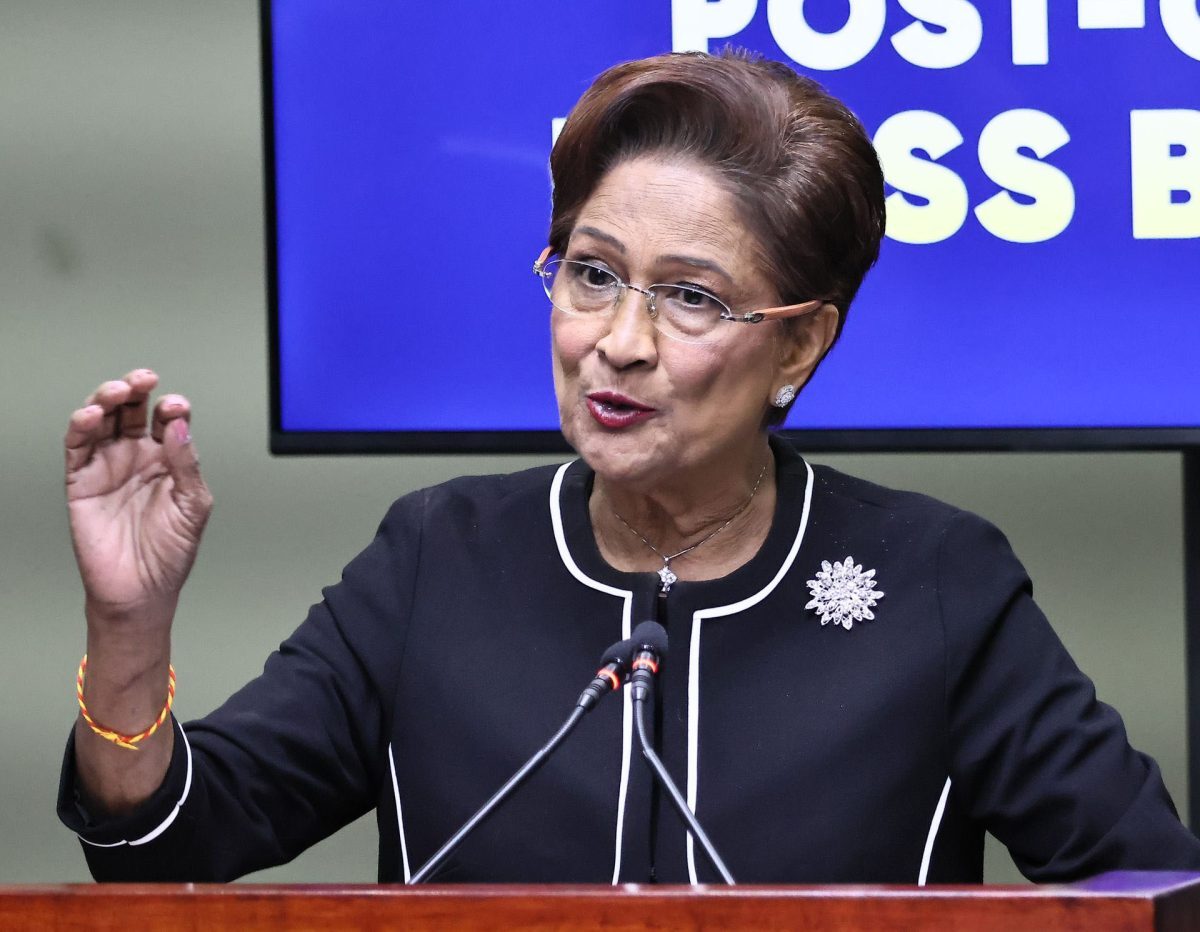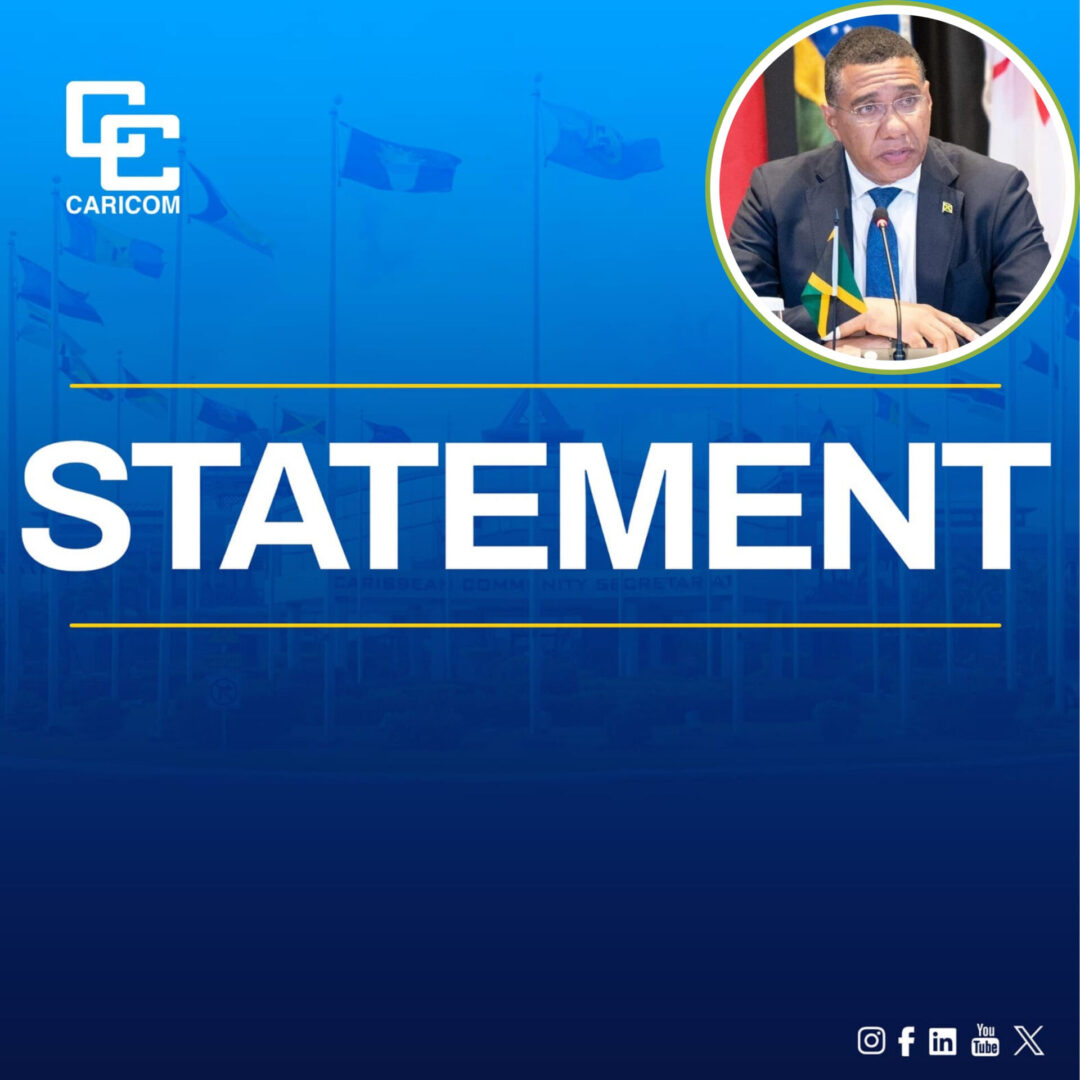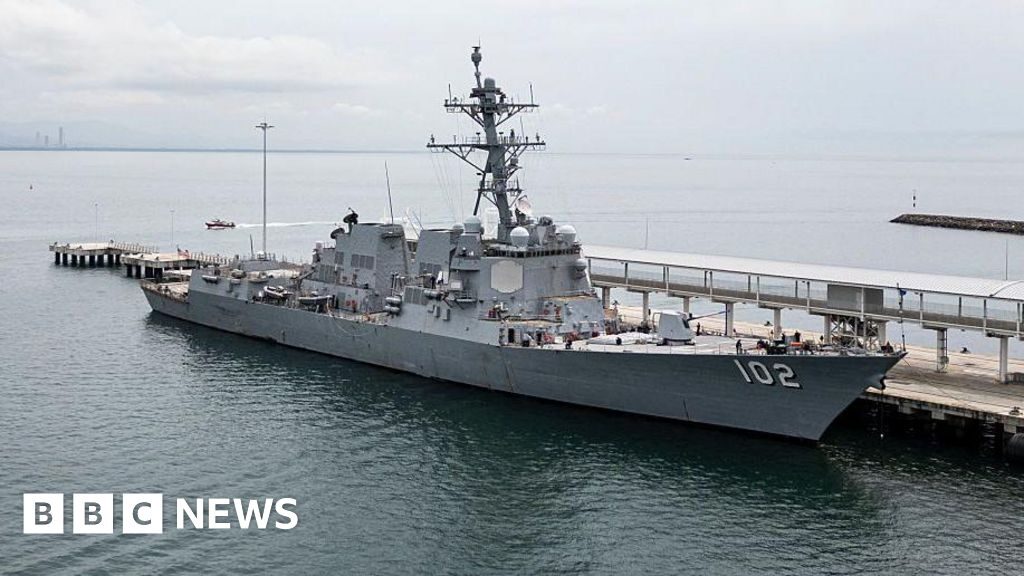Trinidad and Tobago breaks ranks with CARICOM, jeopardising peace in the region
Jamaica Live Regional News – | Oct 20, 2025
Trinidad and Tobago’s government, led by Prime Minister Kamla Persad-Bissessar, on Sunday, October 19, again declared its “categorical” support for the ongoing U.S. military presence and operations in the southern Caribbean Sea. The statement—issued by the Ministry of Foreign and CARICOM Affairs—came amid heightened regional tension following a series of lethal U.S. strikes on suspected “drug boats” near Venezuelan waters.

The announcement also followed reports that Port of Spain declined to endorse a CARICOM consensus text over the weekend on the region’s security environment—an unusually public break with most Community members on a high-stakes foreign-policy question.
On Saturday, October 18, Heads of Government of the Caribbean Community (CARICOM) met and issued a statement on the “increased security build-up in the Caribbean.” Except for Trinidad and Tobago, which reserved its position, leaders:
- Reaffirmed the principle of maintaining the Caribbean as a “Zone of Peace.”
- Reiterated commitment to fight narcotrafficking and the illicit trade in small arms, stressing that any counter-crime efforts must occur through international cooperation and within international law.
- Reaffirmed unequivocal support for sovereignty and territorial integrity in the region, and the safety and livelihoods of Caribbean people. CARICOM
CARICOM’s communiqué did not endorse any foreign power’s operations; it anchored the regional position in law, dialogue, and de-escalation—language that has become the Community’s touchstone across recent crises.
Jamaica’s Prime Minister Andrew Holness assumed the rotating CARICOM Chair on July 1, 2025, with an agenda that placed heavy emphasis on regional security and coordinated action against transnational organised crime. In his early Chair remarks, he urged “concerted action” against criminal networks and called for a global “war on gangs.”

In the present crisis, Holness amplified the CARICOM statement on his official channels, directing the public to the Community’s position on the security build-up and the guiding principles of sovereignty, the Zone of Peace, and compliance with international law. (Holness shared the CARICOM release and link on October 18, in his capacity as Chair.) X (formerly Twitter)+1
Heads of Government of the Caribbean Community (CARICOM) met and discussed various issues on the regional agenda including the increased security build up in the Caribbean and the potential impacts on Member States. Save in respect of Trinidad and Tobago who reserved its position, Heads agreed on the following:
They reaffirmed the principle of maintaining the Caribbean Region as a Zone of Peace and the importance of dialogue and engagement towards the peaceful resolution of disputes and conflict. CARICOM remains willing to assist towards that objective.
CARICOM Heads of Government reiterated their continued commitment to fighting narcotrafficking and the illegal trade in small arms and light weapons which adversely affect the Region. They underscored that efforts to overcome these challenges should be through ongoing international cooperation and within international law.
They reaffirmed unequivocal support for the sovereignty and territorial integrity of countries in the Region and the safety and livelihoods of the people of the Region.
Taken together, Holness’ actions align Jamaica’s chairmanship with CARICOM’s collective stance—urging restraint, regional unity, and internationally lawful cooperation against crime—while noting that Trinidad and Tobago reserved its position.
Trinidad and Tobago’s open embrace of U.S. military activity in the southern Caribbean raises serious questions about motive and loyalty to regional peace. Only days before Port of Spain declared its “categorical support” for Washington’s operations, the U.S. quietly granted authorization for Shell and Trinidad to develop a lucrative offshore gas field in Venezuelan waters, a project long frozen by American sanctions.
The timing is no coincidence. For the Persad-Bissessar administration, the promise of energy profits appears to outweigh the potential fallout of deeper militarisation in Caribbean waters. Critics argue that by aligning so closely with Washington’s strategic agenda, Trinidad is willing to jeopardise regional unity and stability for financial gain — effectively trading the Caribbean’s hard-fought “Zone of Peace” for short-term economic leverage and U.S. favour.
For Trinidad, the alliance appears to be part of a broader strategy aimed at protecting its energy interests and ensuring economic stability.

Since early September, the United States has conducted multiple lethal strikes on fast boats and a semi-submersible in Caribbean waters as part of an expanded mission overseen by U.S. Southern Command. Reports indicate dozens killed and significant U.S. force posture—from warships and a nuclear submarine to F-35s and B-52 sightings—operating in or near the southern Caribbean, including off northeast Trinidad. Critics question the operation’s legal basis and whether the targeted routes are primary narcotics corridors to the U.S.
This morning, President Trump ordered a strike on a narco-trafficking vessel affiliated with Designated Terrorist Organizations headed to America and loaded with enough drugs to kill 25,000 to 50,000 PEOPLE off the Coast of Venezuela.
On October 3rd, the official White House Twitter account post a video stating that President Trump ordered a strike on a narco-trafficking vessel affiliated with Designated Terrorist Organizations headed to America and loaded with enough drugs to kill 25,000 to 50,000 PEOPLE off the Coast of Venezuela.
Several investigative pieces and wire reports also detail two Trinidadian nationals believed killed in a recent strike, deepening domestic debate in T&T and raising human rights concerns across the region.
CARICOM has raised urgent concerns about maritime safety and livelihoods across the Caribbean, warning that increased U.S. military operations in the southern arc pose potential dangers to fisherfolk and small craft operators who depend on open and secure seas for their daily survival. The regional bloc underscored that the Caribbean must remain a Zone of Peace, urging all partners to respect sovereignty while pursuing anti-crime efforts within lawful boundaries.
Reaffirming its commitment to international law, CARICOM emphasized that even in the pursuit of drug interdiction and security cooperation, operations must adhere to legal process, proportionality, and accountability to prevent escalation into interstate conflict. The statement, issued on October 18, highlights the Community’s intent to preserve both regional peace and economic security, amid fears that heightened foreign military presence could undermine both.
As Chair of CARICOM, Jamaica’s Prime Minister Andrew Holness is expected to play a crucial diplomatic role in balancing alliances and mediating tensions. Holness has indicated his intent to uphold CARICOM’s principles while engaging directly with Washington on transparency, prior notification, and civilian protection in line with the regional consensus.
Looking ahead, CARICOM plans to maintain continuous consultations through its foreign ministers’ council (COFCOR) to engage the United States on de-confliction protocols and legal safeguards, while seeking to keep Member States united—acknowledging Trinidad and Tobago’s reserved position. Meanwhile, public and media scrutiny of the U.S. strikes continues to intensify, with growing calls from both regional observers and international outlets such as The Washington Post and Reuters for evidence of legality, civilian-harm mitigation, and long-term regional impact.
